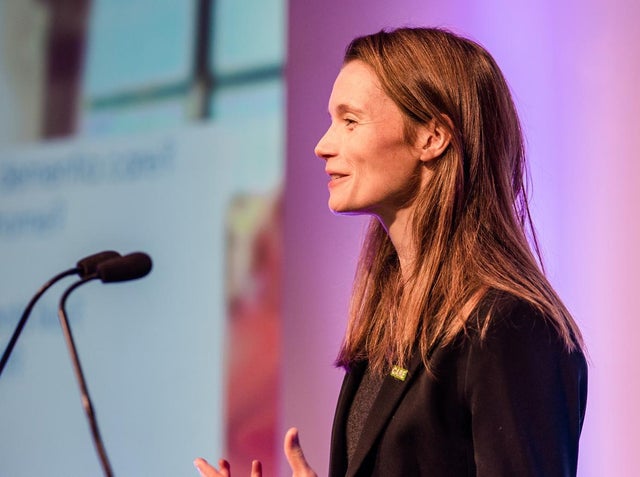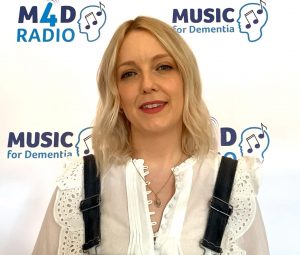Thousands of care home residents are missing out on vital music therapy sessions and social interaction, which significantly alleviate the symptoms of disorders such as dementia because those who deliver them are not classed as essential workers.
Many therapists are freelancers and have not been allowed into care homes during the pandemic because they are not classed as key workers, according to a report by The Mirror online.
Grace Meadows, Director of Music for Dementia, was quoted in the Mirror report: “We’re hearing from music therapists every day who are telling us they can’t work because they’re freelancers and not essential workers. It means thousands of people are being denied access to services that are vital to their quality of life.”

Without access to meaningful daily social interaction through visits, including those with music therapists, many residents have developed anxiety and become reliant on medication they did not previously need, said the report.
Studies have reported that singing in care homes can reduce anxiety by 50 per cent and the need for medication by 67 per cent. The Alzheimer’s Society is calling on the Government to place social contact at the heart of its plans to support people with dementia during the ongoing pandemic.
“There’ll be a million people with dementia in the UK by 2025. A million people living with a condition that does not yet have a cure,” says Fiona Carragher, Director of Research and Influencing, at Alzheimer’s Society.
The shut out of music therapists in care homes is also hitting some freelancers hard with many seeing all of their work dry up overnight. Those therapists set up as limited company contractors, PAYE freelancers and the newly self-employed – will continue to fall through the gaps in government support.
Carer to companion
Renate Winkler, Managing Director of Guardian Carers, an introductory care agency matching carers and companions in people’s homes all over the UK and internationally, tells The Freelance Informer, “Pre-lockdown, a good number of our clients needed carers to help part-time or with complex care. But now, many of our new clients are unable to see their families and are isolated, therefore unable to have much social interaction. Since being alone their health has deteriorated.”
Winkler says families now place priority on carers who can create a personal connection with their loved one and provide the companionship element. “They are no longer needing just personal care or help with medications, for example. It’s about helping with their mental health and keeping them entertained,” she explains.
While Guardian’s carers are not qualified therapists, many have taken online courses on how to better engage with clients, says Winkler, with ‘out of the box thinking’ making a lasting impression for clients when it means creating different activities for clients bespoke to their abilities and interests.
“It’s vital for them to not only have care, but to receive something extra. We get to see first-hand how happy our clients are when carers take them out for walks, sing or listen to their favourite music, play puzzles and other cognition-enhancing games. For instance, we have partnered with My Cognition who offer therapy for people with dementia through their app which trains the brain with games.”
The power of music
Meadows says music therapy services are “vital” for many patients. Figures from Alzheimer’s Society showed an extra 10,000 dementia deaths in England and Wales in April following the severe impact of social isolation on people with the condition.
According to Meadows, while there is no cure for dementia, “music can respond to this challenge unlike anything else.”
When care homes had to close their doors to visitors at the onset of the pandemic in March, an Alzheimer’s Society investigation found that lack of social contact is having a devastating impact on people with dementia. A total of 79 % of care homes reported that the lack of social contact is causing a deterioration in the health and wellbeing of their residents with dementia.
Alzheimer’s Society’s Dementia Connect support line was receiving hundreds of calls from relatives of loved ones in care homes, where at least 70% of residents have dementia, telling heart-breaking stories of people with dementia feeling confused and abandoned by the lack of visits, stopping eating, losing the ability to speak and ‘disappearing’.
One man told the charity “I’m really fearful my wife won’t recognise me at the end of this”, as fears about care homes become the top concern of the charity’s support line.
Meadows says that technology and online services are useful and have helped to bridge the gap, but because music is most impactful when it is delivered in person and can be experienced in real life, together, music is not “simply a nicety for care home residents with dementia – it is a necessity.”
Radio to the rescue
Musical memories are typically made from out early teens through to our late twenties, according to Music for Dementia. The charity has launched a free radio station called M4D Radio, which enables therapists, carers and family members to choose the birth year to listen to a chosen musical decade where musical memories were made.

The station even has its own celebrity DJ ambassador, Lauren Laverne, who has recorded a welcome message for the stations and is also spearheading a celebrity song dedication campaign on social media. The #Song4You campaign on Facebook, Twitter and Instagram is gathering a following of celebrities dedicating a song to someone they know who is affected by dementia.
Stigma still remains among BAME communities
Mohammed Rauf MBE, a leading voice in the BAME dementia space, is joining forces with Music for Dementia to call for more awareness and a more culturally inclusive approach to care to cater for the BAME communities and those with the condition.
What many people outside BAME communities do not know is that dementia and Alzheimer’s are disorders that hold very taboo connotations for certain cultures – even being linked to witchcraft or punishment from God in some cases. There are even South Asian languages including Urdu, Punjabi, Hindi, Gujarati and Bangla that do not have a word that describes these disorders.
“The stigma around dementia is due to a lack of understanding,” says Rauf in an interview with The Voice online.
“Dementia is thought about in a derogatory way by many people in the BAME communities,” he says in the report. “Some think it is madness, possession by jinns or witchcraft, others think it may be a punishment from God. So, the family carers and the person with dementia hide it and do not easily seek help or assessment. This means they miss out on vital support, such as music therapy until they reach the point of crisis and more intensive support is needed.”
“It’s a vicious cycle. When intensive support is needed, there is then stigma on top of that,” according to Rauf, who in 2016, while a Doctoral Training Centre PhD student and manager with Bradford Council’s, received an MBE in the Queen’s Birthday Honours list for his Services to People with Dementia and their Carers.
“Some BAME families won’t ask for additional help due to fear of prejudice from services and are reluctant to move relatives to a care home due to concerns about how that will be perceived in their community,” says Rauf.
According to the dementia specialist, many families quietly try to get on with caring at home, which inadvertently leads to service providers thinking BAME communities are “happy to look after their own because their numbers are very low at the point of seeking help and support.”
Get app-y
But solutions are being developed. For example, The Music for Dementia team has tailored a Musical Map to include many virtual and online musical services. It is constantly being updated with the latest event information, too. An additional list of other music therapy apps and online resources can be found here.
If you are interested in a career as a music therapist, here is a guide published by The British Association for Music Therapy (BAMT). For guidance on virtual therapy sessions with clients, here is another source from the British Psychological Society.
If you are a carer with an amazing story you would like to share, don’t be shy and get in touch on editor@freelanceinformer.com
If you do have an industry-wide concern that you believe needs wider press coverage, please get in touch. We’re here to help.


